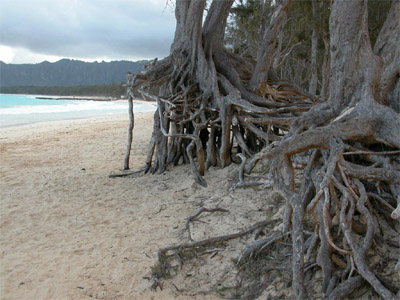For Immediate Release: June 15, 2012
DLNR ENFORCEMENT CITE MAN FOR ILLEGAL LANDING AT MANANA ISLAND, HARASSMENT OF MONK SEAL
Sentenced to $1,000 fine and 80 hours of community service
HONOLULU – An O‘ahu man was sentenced to a $1,000 fine and 80 hours of community service in Kaneohe District Court after being cited by Department of Land and Natural Resources (DLNR) enforcement officers for illegally landing on Manana island. Also known as Rabbit island, it is a wildlife sanctuary that is closed to the public at all times.
Seals are protected under state and federal endangered species laws and are known to haul out on Manana to rest. Large prominent signs are posted on the island noting it is a sanctuary off-limits to visitors.
Travis Kane, 19, was observed and photographed throwing rocks at a seal on the island on January 14, 2012. DLNR Division of Conservation and Resources Enforcement (DOCARE) officers followed and stopped Kane, a passenger on a personal water craft at the Kailua boat ramp, and cited him for illegal landing on the island and harassment of a monk seal. The man pleaded no contest at his court arraignment in May.
“We are strengthening our efforts to educate the public — kayakers, stand-up paddlers, fishers, boaters, beachgoers included — that it is a violation of state and federal law, subject to state penalties, to harass, harm or injure monk seals, which are an endangered species,” said William J. Aila, Jr., DLNR Chairperson. “These efforts include working with communities and “Makai Watch” groups, ocean recreation companies, and the visitor industry.
“It also includes consistent effort, again with community participation, to enforce these laws and seek proper penalties. There is no excuse for harming or harassing a monk seal. Anyone witnessing monk seal harassment, abuse or killing of a seal, is asked to call DOCARE at 643-DLNR or the NOAA Office of Law Enforcement at 1-800-853-1964. Working together we can protect our small population of these native seals that are important to our culture and ecosystem.”



